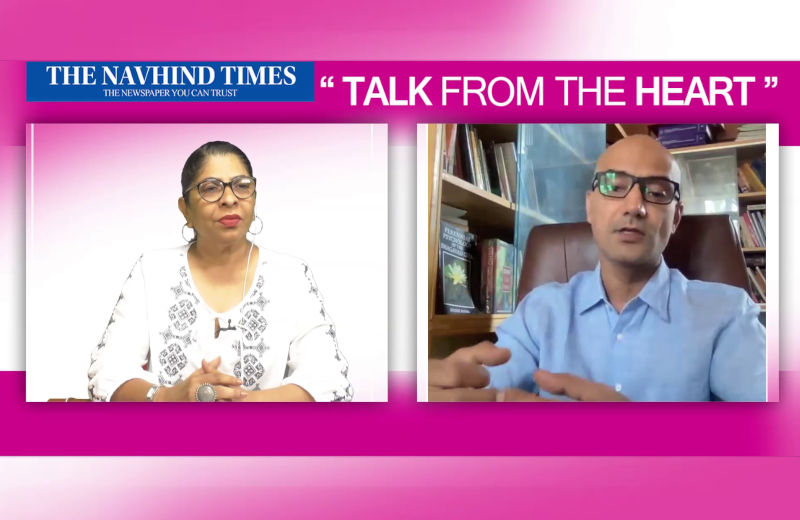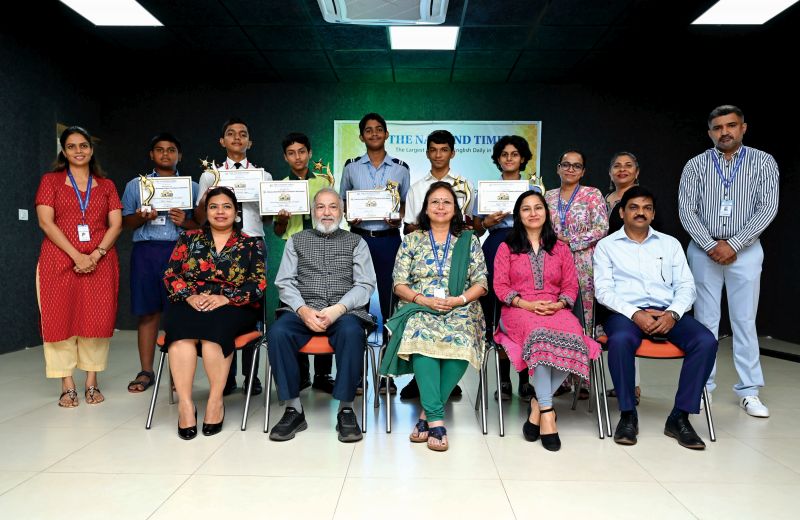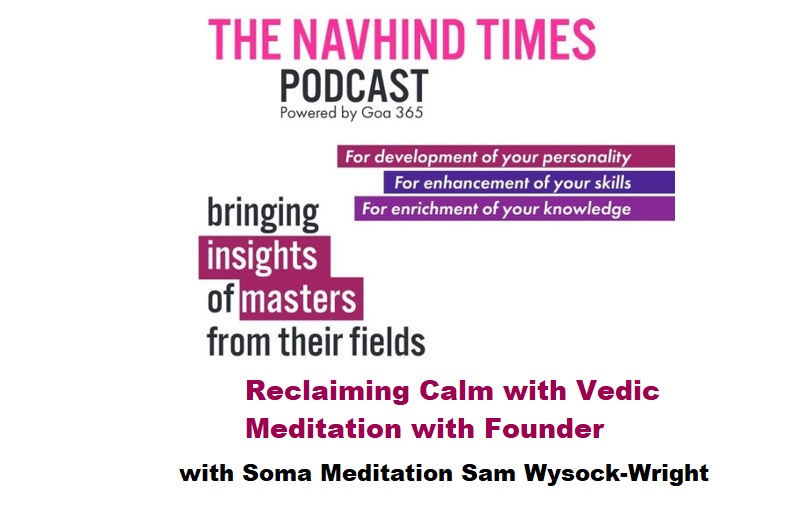
Research shows that more than 400 million people suffer from stress that develops and manifests itself in the form of depression, anxiety and its consequent problems like addiction, relationship issues, etc which in some cases can even lead to death and suicide. In a country with inadequate medical services, the area of mental health is woefully neglected. A World Health Organization paper says there are just about 50 government-funded facilities for the estimated 70 million-plus people living with mental health disorders; that is for every million Indians, there are just three psychiatrists and even fewer psychologists.
Psychiatrist, Integrative Medicine specialist, and writer, Dr Shyam K Bhat was the guest on The Navhind Times’ Talk from the Heart show which aired on Sunday, April 10 on the Goa 365 channel. Bhat who has a rare combination of postgraduate training and American Board certifications in two specialities – Psychiatry and Internal Medicine; is also board certified in Psychosomatic Medicine.
Integrative medicine as Bhat explained, has been there since ancient times and the connect between mind and body and even the different organs within the body, has been a part of all ancient systems of health and healing. “The human body is one integrated unit and we are not separate organs rather all the organs are interacting and influencing each other. In addition, we are also connected to the world around us through relationships, environment, nutrition, etcetera, hence integrative medicine gets the best from every system of medicine, like Ayurveda, yoga, nutrition, acupuncture, Western medicine, meditation besides others and formulates a treatment for that individual and his/her condition,” he said. Unlike modern medicine, the integrative system follows a more holistic approach, with the objective of promoting overall well-being instead of focussing on curing illness alone.
Expounding on the various benefits of the integrative method, he added, “In integration, you are not wedded to one ideology, instead this systems brings together insights, practices and treatment techniques from various systems. The approach to specific illnesses too changes due to this.” Giving an example of a chronic condition like diabetes, he illustrated how the system works.
In integrative medicine, physical and mental illnesses are not considered separate entities and as Bhat reiterated, “All illnesses are mind-body conditions.” Depression, he stressed, is another example of how the mind-body connect works. “Depression affects not just the mental state but the brain, blood cells, metabolism, heart-rate as well,” he explained.
Bhat’s expertise also includes holistic psychiatry and he is in fact called a pioneer of holistic psychiatry in India. “Emotional or mental health issues cannot be adequately understood along one dimension alone. There are multiple variables at play, and in order to truly treat an issue, all relevant aspects of the issue have to be considered: Biological (brain), psychological (mind), and physical (body). In addition, sociological, cultural, relational, existential and spiritual issues have to also be explored,” he simplified and called holistic psychiatry a synergy of all these factors along with all the treatments, practices and interventions that are known to improve mental health.
For a person with a mental issue however navigating the mental health system is not as easy task. With the various options available, choosing the best specialist is often confusing. “Ideally if you are feeling low, in my opinion the best doctor to go to is a psychiatrist who is also trained in psychotherapy; as he/she would be able to assess and determine if your case can be resolved through therapy and counselling or it requires other specialists,” he said. Clarifying that therapy is a function and not a qualification, he explained the difference and recommended choosing a specialist based on severity of the condition.
With work stress at a very high level, not just in the country but globally as well, measures to combat this silent killer that affects all areas of an employee’s life is much needed. Bhat spoke at length on this issue and gave various suggestions how employers’ can make this possible.



